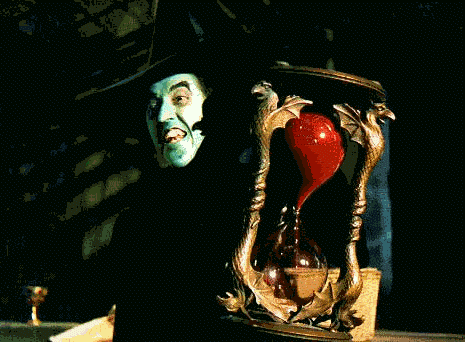It’s 11pm the night that I have to upload this article. I’m going to finish it at some point. Probably. But that’s what the creative process is like, right? OK, here goes. On a superficial level procrastination seems like it’s counterpro – I should check Facebook. I think there may be a new video of a kid (the baby goat, not the child) bleating like a kid (the child not the baby goat). OK, now back to writing.
We’ve been programmed to think that procrastination is bad for us. Teachers will warn against the perils of putting things off. They say that your work won’t be as good, and a studious person does things as soon as they can – to leave their “To Do” list as empty as possible. And then ultimately when you don’t listen to that advice ‘cause, well, what do teachers know, you end up getting in trouble with your parents for putting off that project until the night before it’s due. You’ll be told some things like being responsible means doing things in a timely manner, not waiting until the last minute. That an upstanding adult wouldn’t wait until the last minute, and that this isn’t how the world works.
But then you grow up, and you realize that that’s totally how the world works. I’m not saying that every aspect of life is fine when you procrastinate. For instance, if you wait until the last minute to book a flight for the vacation you want to go on, you’re probably going to either not fly out when you want, or spend a bunch of money on a last minute ticket, or both. Or waiting until the last minute to go to the hospital can result in, well, death. But there are instances where procrastination is viable. Even helpful.
As I alluded to in that beautifully-crafted opening paragraph, I’m speaking of the creative process. Creativity is a weird thing. When you’re starting out, it comes to you in inopportune moments, and is fleeting when you need to tap it. You learn to hone that skill, but with experience comes the inevitable crush of overthinking the piece you’re working on. Projects stall because you haven’t quite figured out that one part of the puzzle. Or every solution you’ve come up with isn’t quite good enough. So you say “I need to let this marinate” and you put it off. Which is procrastinating. But stepping away from something you’re working on is definitely beneficial. It allows your brain to do some behind-the-scenes work, which (hopefully) will result in the aforementioned “coming to you in an inopportune moment.” Which is a great experience. To put it eloquently, doing something random and then being hit with that eureka moment where your brain farts out that perfect piece is the tits.
When you add a deadline aspect onto procrastination is when you really start seeing results. That’s where I really think the strongest advantage of procrastination lies. As the English proverb goes, “Necessity is the mother of invention.” I know this is an English proverb because I took a break from all this writing I’ve been doing to look up the etymology of the term. And watch some more baby goat vids. Anyway, the danger of procrastinating on something is that if that something is open-ended, you may find yourself not coming back to it. That’s why most writers have an unfinished novel that’s filed somewhere for some long amount of time (as explained by Family Guy’s Stewie here). But when you’re restricted to a specific time limit, you’re forced to come up with results. This is where creativity thrives.
My first experience with this was undertaking NaNoWriMo, or National Novel Writing Month. Started by Chris Baty in 1999, this is a writing exercise where you write a 50,000-word novel, and you have 30 days to write the first draft. That comes down to 1,667 words a day. Which is a lot. And if it doesn’t feel like a lot, trust me, it becomes a lot. But that crazy word count paired with the crazy deadline forces you to be creative. My story went in directions I didn’t expect, since I had to bang out my words for the day. Had I been given a more realistic timeline to finish the novel, I’d have questioned the things I put in that first draft, and I probably wouldn’t even have thought up of other things.
Procrastination is the same way. By putting things off, you’re not just reducing stress levels (doing something when you’re not really feeling it inspired is stressful), you’re not just letting your brain figure things out, nor are you just empowering yourself to watch very very important baby animal videos on YouTube. You’re also consequently giving yourself a very real and very limited amount of time to actually complete the thing you were working on. Which will give your brain that extra special motivation it needed to crank out some creative work.
The only danger is figuring out how long you can realistically put something off before you’re completely screwed. If I wait to begin writing until 5 minutes before an article is due, I probably won’t be submitting it when I’m supposed to. But on the other hand, it’s kind of a rush to see just how long you can put something off. To challenge yourself and say “Yeah, that was the nick of time, but I can finish it in even a more nickier time.” So if you ever see a one-sentence article from me (i.e. hear that I’ve been canned), you’ll know I my procrastination hubris got the better of me. Or something like that. I don’t know, I’ll come back to that last sentence later…
















-300x200.jpg)









